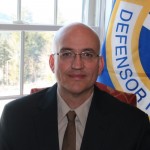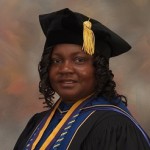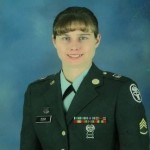Compiled by Leischen Stelter, Editor of In Public Safety
Every year on November 11, the United States recognizes Veterans Day, a day to reflect and commemorate those who served in our armed forces. American Military University (AMU) has a rich history of educating those who serve, and many of our students, faculty members, and staff members have served in the military.
In recognition of Veterans Day, In Public Safety asked some of our faculty members who have served to discuss the benefits of being a veteran, the greatest challenges they faced, what advice they would give new veterans, and the best way the public can thank veterans.
Meet Our Faculty Members

Allan Conkey is a retired Air Force officer with more than 25 years of active-duty service. He served as the chief of security forces/military police, mostly overseas.

Jennifer Bucholtz was a counterintelligence agent for the Army. She served on active duty for five years, from 2000 to 2005, and continued to contract as a civilian for the Department of Defense until 2012. She deployed to both Iraq and Afghanistan in support of Operation Iraqi Freedom and Operation Enduring Freedom.

Michael Beshears retired from the Army after 22 years of active duty. He achieved the rank of Master Sergeant.

Valerie Davis was a senior intelligence professional for 23 years. She worked at various Major Command levels and intelligence communities.

Beth Subero served in the Air Force for 21 years. She started as an enlisted computer operator and, after making staff sergeant, became an intelligence officer. She was deployed to Italy for Operation Allied Force and Kuwait and Turkey for Operation Enduring Freedom and Operation Iraqi Freedom.

Michelle Beshears spent 11 years in the Army. She achieved the rank of staff sergeant and then attended officer candidate school where she was commissioned as a second lieutenant.

Chris Davis was in the Air Force for 20 years, retiring as an E-8, senior master sergeant.
Question: What’s the Most Important Thing You Learned from Your Military Service That You’ve Applied throughout Your Life?
Allan Conkey: I learned the value of leading by example and taking personal responsibility for myself and my actions. I learned that integrity, honesty, and overall ethics matter a lot in everything you do in life.
Jennifer Bucholtz: I have always been passionate about my jobs, but the military created an even better sense of dedication to duty. I always keep in mind that no one is forcing me to do the job(s) I choose. Therefore, I must do my absolute best at each one.
Michael Beshears: The military taught me that attitude is everything and to always be prepared.
Valerie Davis: My service taught me skills in strategic planning and critical thinking.
Beth Subero: I learned to always keep myself open to unforeseen opportunities and remain open-minded in general. The Air Force presented me with many opportunities. Initially I thought some were bad deals, but, in the end, they resulted in working with amazing people, learning something new, or helping someone less fortunate.
Michelle Beshears: I learned that life can get hard, but as long as you keep a positive attitude you can make it through just about anything.
Chris Davis: I learned to be flexible and remain tolerant of others.
Question: What Was the Greatest Challenge You Faced in Your Transition from the Military to Civilian Life?
Allan Conkey: The challenges I felt were not economic, but I had to re-learn how to see the world. For example, for the most part, people in the military take responsibility and when they give you their word it means something. In the civilian world, it seems to be more superficial. It’s true what they say about the military not being just a profession, but rather a way of life. That can be a difficult change to adopt when someone leaves the military and starts the next stage of life.
Jennifer Bucholtz: One of the biggest challenges I faced was learning and accepting that I would be forever changed. Going to war changes every person who has deployed to a combat zone, whether they want to admit it or not. Transitioning from a daily goal of not dying back to regular life is difficult. For someone coming out of the military, normal daily tasks such as grocery shopping, making phone calls, and cooking dinner become mundane and seem completely unimportant. It is often hard to connect with others who were not in the military and those who have never been to a combat zone. Losing the close companionship of, and bonds to, fellow soldiers was difficult as well.
Michael Beshears: My greatest challenge was the uncertainty of obtaining immediate employment.
Valerie Davis: It was hard to adjust to a slower pace. I had to learn how to calm down and not be ready to deploy within 24 hours at a moment’s notice.
Beth Subero: My last assignment was at the Pentagon working for the Deputy Chief of Staff for Intelligence, Surveillance, and Reconnaissance. In that position—and at the Pentagon in general—the pace is such that you have very little time to stop and smell the roses and it’s easy to get caught up in the mentality that everything needs to be done yesterday. It has been my experience that the civilian world does not work that way. While this sounds like a blessing and not a challenge, it’s easy to get impatient or frustrated with the way the way the civilian world works. In my three years since retirement, however, I have learned to appreciate the civilian way of life.
Michelle Beshears: The biggest challenge I faced was leaving a very structured environment. I felt a sense of uneasiness and uncertainty about my future, especially since my career ended so abruptly due to a medical discharge.
Chris Davis: Initially losing the camaraderie was very challenging. But I was lucky that I went to work for a police department, which made my transition so much easier.
Question: Many of Your Students Are Earning Degrees in Preparation to Leave the Military. What Piece of Advice Would You Offer Them about What to Expect and/or How to Prepare?
Allan Conkey: I tell students to know what their end goal is before selecting a major. Learn about the field you’re interested in and make sure you understand the skillsets needed before starting school. I think a lot of students think of a major first, when they should really be thinking about their goal and how a degree program can help them get there.
Jennifer Bucholtz: Attend every career assistance training possible. The military offers these classes prior to one’s end of time in service (ETS). Additionally, keep in contact; keeping in touch with prior military members and teammates can be a huge help in finding a job. Plan ahead financially and do not assume you will have a job immediately upon leaving the military. Remember that your housing and food will no longer be covered by the government and you will have more bills to pay as a civilian.
Michael Beshears: I strongly recommend obtaining as much civilian education as possible prior to transitioning back to the civilian marketplace. This can be done while on active duty by taking advantage of tuition assistance (TA) and the college-level examination program (CLEP). CLEP tests are offered free to active-duty members at their military installation’s education center and offer a way to receive college credit in a multitude of subjects. Additionally, CLEP tests may be re-taken until passed. The education center can provide study materials to assist in preparing to take specific CLEP subjects.
Valerie Davis: Clearly outline your skills in business terms so that employers who have never served in the military understand your skills and abilities.
Beth Subero: Take every advantage to increase your education. You can never have too much education. When you get to your civilian position, especially if it’s within the government sector, you are going to encounter many recent college graduates who don’t have anywhere near the amount of experience as you. And guess what, you may work for many of them. This can be a challenge, but don’t let it sour your attitude. Compare it to that brand-new second lieutenant or ensign you worked for in your military career. Remember when you had to give him or her advice on how to deal with a difficult situation? The exact same thing is likely going to happen in your civilian career. Don’t let your ego get bruised. Handle it with the same professionalism you did in your military career. In the end, your efforts will get noticed.
Michelle Beshears: The biggest advice I can give to students is to embrace all that you know and have learned throughout your military career. Be sure to seek work opportunities of interest that place you around people who share many of your same core values. Seek out other veterans who have made a successful transition, and ask for their advice and encouragement.
Chris Davis: Have a plan of action for when you leave the military. As for what to expect, veterans must understand and accept that not everyone is as dedicated to their work as you might like.
Question: What Do You Think Is The Biggest Challenge for Today’s Veterans?
Allan Conkey: It’s two-fold. For those struggling with war-time experience, it is coping with those memories, PTSD, and other related illnesses. For other veterans, it is the lack of being able to find good-paying jobs.
Jennifer Bucholtz: In my experience, finding consistent employment is a big problem for many veterans. In recent years, I have been unable to obtain full-time work and I know numerous other veterans having the same problem. In some cases, I think there is a stigma held by many hiring managers about veterans, wrongly assuming that PTSD or other combat-related injuries (some visible, some not) may interfere with one’s ability to work. It’s simply not true, but the belief is out there. Also, there are so many more veterans entering the work force each year and it seems like there are fewer available jobs.
Michael Beshears: The biggest challenge for veterans is simply readjusting to the civilian culture and way of life.
Valerie Davis: Many employers have a hard time understanding a veteran’s skill set and looking past their combat experience at the whole person.
Beth Subero: We often hear in the media about how important veterans are and how much we should take care of them and honor them. All of this is true, but, in reality, the welfare of veterans is not always a priority. As a veteran, you should be incredibly proud of your military service, but you must also manage your expectations when it comes to what America “owes” you.
Michelle Beshears: The biggest challenge for veterans today is that we have a lot of soldiers who face issues with PTSD, but are reluctant to admit their condition for fear of being scrutinized.
Chris Davis: With so many veterans returning from combat, it is very difficult to reintegrate into society.
Question: What’s the Best Way Someone Can Thank a Veteran?
Allan Conkey: A simple comment such as “Thank you for your service” can do wonders. Just look at the face of any veteran when they hear this appreciation and you will know it doesn’t take anything more.
Jennifer Bucholtz: Shake their hand and say, “Thank you for your service.” Keep it simple.
Michael Beshears: I am not sure there is a best way to thank a veteran. Veterans and their immediate family members deserve respect and recognition for what they have endured and sacrificed. I feel this is expressed to a veteran when someone reaches out to shake their hand and says, “Thank you for your service.”
Valerie Davis: Provide them an opportunity to utilize their skills out of uniform; give them a hand up, not a handout.
Beth Subero: Just say thank you or nod in appreciation. But most importantly, thank our WWII, Korean War, and Vietnam-era vets. They are not going to be with us forever. It’s impossible to compare their sacrifices with the veterans of our younger generation, but please don’t forget them. I wish my grandfather and great-uncles were still with us, so that I could thank them just one more time.
Michelle Beshears: The best way to thank a veteran is to acknowledge their service, as well as the hardships they have endured to protect your freedom. Any small gesture that shows this appreciation means the world to veterans and lets them know that their service will not be forgotten.
Chris Davis: I think a simple word of thanks is really all anyone wants, especially older veterans.
Comments are closed.